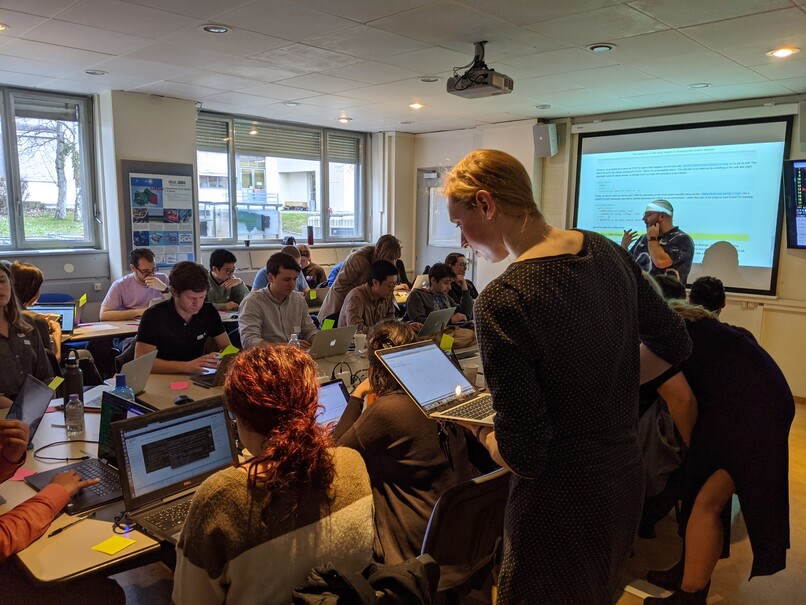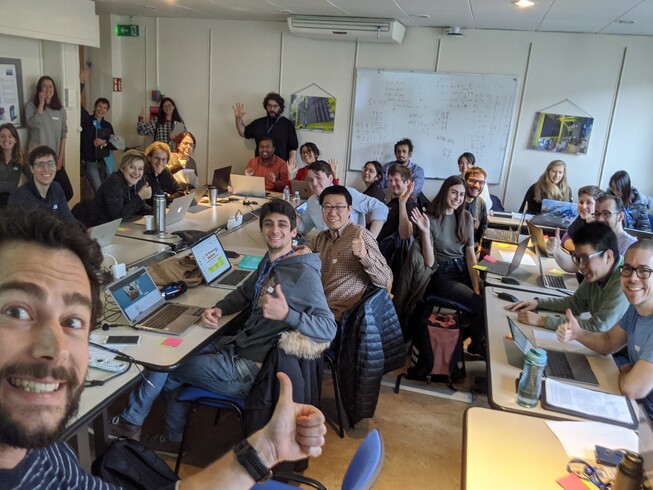Educators
The HSF training group relies on proactive and dedicated educators coming from within the field of high energy physics. Here we aim to introduce you to what it means to be an HSF-Educator, the different types of roles that exist, and who has served the community by giving their time and energy to bootstrapping the education of HEP. If you are interested in serving as an educator, please do not hesitate to contact the HSF-Training conveners for more details.
If you want to organize a complete workshop, we also have recommendations on that.
Mentors
The philosophy of HSF training events is to be as hands-on as possible for the participants. This requires a participant:educator ratio of five or less. As a result, we rely on having enthusiastic individuals, who we call mentors, who are able to work closely with participants. These individuals are familiar with the subject matter of a specific training event, but come with the openness to help participants persevere and “learn on the fly” in a role that is entirely aimed at optimizing the learning environment for individual participants. They are critical to the success of any event and through participation as a mentor not only serve the community, but develop pedagogical communication skills that are transferable to other aspects of their research/teaching portfolio.
Instructors
An efficient execution of a training event is made possible through focusing on the presentation of the subject content of that training by a single individual. We call these individuals instructors. Instructors are the primary academic drivers of the HSF-training program at large and fit in by both developing new content, including Software Carpentry style lessons and recorded lessons, while also serving to lead individual training events. These individuals are subject-matter experts to whom mentors can derive guidance and in addition to developing useful content, also gain experience in curriculum design with a focus on optimizing pedagogy for all learning styles.

Facilitators
Allowing Mentors and Instructors to focus entirely on the subject matter requires at least one individual to organize any given event globally. We call this individual the facilitator. This individual is responsible for putting together all of the pieces of the puzzle to successfully execute the full event while serving as the primary point of reference for participants to communicate. The facilitator is essential and takes on a dynamic responsibility beyond the “core content” of the training event itself and learns essential “soft skills” necessary to be a leader in the academic community.

The Educators
The following individuals have been involved in carrying out successful training events as a member of the HSF-Training community. If you see them in the real or virtual world, take a chance to thank them for generously giving their time to teaching others, thereby making our field more knowledgeable as a whole.
If you contributed, but don’t find yourself in the list below (or spot some outdated information), see here for how to fix this. This list was added in June 2020 and is likely still very incomplete.
For a full list of everyone contributing to HSF training, see here.